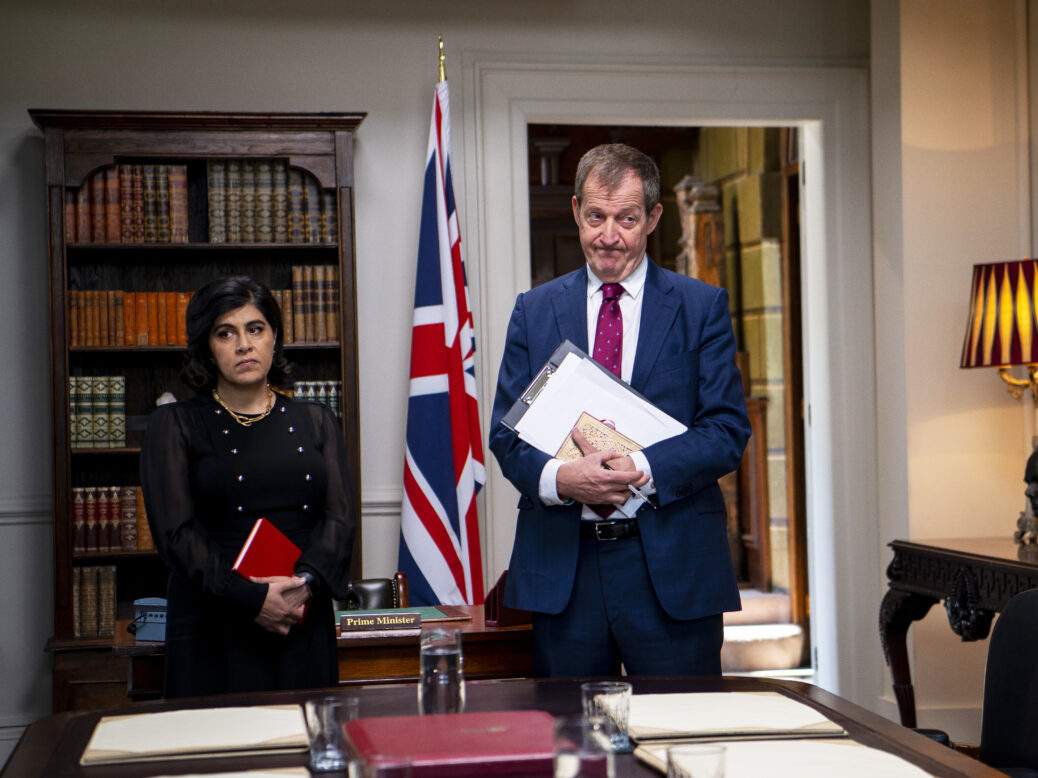
When I first moved to the UK from the American Midwest ten years ago one of the most bizarre experiences was coming into contact with the UK’s middle-class political comedy industry. Wherever I went, whether it was a university common room, a friend’s house, or even online (where I’d begun to follow British journalists and commentators), it felt like there was no escape from endless panel shows such Mock The Week and Have I Got News For You. Initially these shows seemed fun and fresh to me, a teenager raised on the US’s limited variety of political comedy and satire. But the more I watched, the more I grew to find these shows myopic, repetitive, obvious and, above all, hokey. Politicians that seemed chillingly sinister were painted as moronic cartoons with inconsequential amounts of power. This chummy, point-scoring approach to British politics necessarily trivialised it and its impacts on society’s most vulnerable.
And yet these shows were evidently an established part of many people’s cultural diets, a cornerstone of their identity. A certain type of middle-class British person viewed politics through this jovial lens. This person seemed to think of themselves as especially clever and see themselves as in conversation with a select group of hilarious intellectuals, uniquely equipped to read between the lines of Westminster and global politics. Their favourite commentator was usually Ian Hislop and their social media feeds were filled with Malcolm Tucker memes. They almost always described themselves as a Blairite, believing centrism to be a benign, rational politics that would always, eventually, be proven right. They would probably describe my distaste for these shows as a result of being American, not understanding their high-minded “British humour”.
Over the last few years the cultural relevance of these programmes has begun to wane. Perhaps the format was tired even to those who adored it, or perhaps viewers felt that politics was longer as funny (thanks to Brexit, thanks to Trump). But clearly the audience for such programmes has not died out entirely. This week Channel 4 launched Make Me Prime Minister, a reality game show where contestants compete to become a beloved politician.
In this moment of acute political crisis the series feels ill-judged, but the format would seem dated in any case: a Noughties relic. Everything from the wink-wink, nudge-nudge farcical Apprentice-style premise to its judges – the ex-Blair adviser Alistair Campbell and the Have I Got News For You regular and ex-chairwoman of the Conservative Party, Baroness Sayeeda Warsi – makes you feel like you’re watching a re-run of something filmed 15 years ago. It also seems designed to appeal to the most wonkish sense of humour: the casting of one of its contestants, Jackie Weaver, the subject of a viral recording of a council meeting in the depths of lockdown, is straight out of the political meme playbook.
The programme raises the possibility that though these political comedy shows have become less popular, the attitude to politics they’ve bred – one that sees anything that happens in Westminster as ineffectual and therefore only valuable as entertainment – has persisted. But in 2022, who does this humour really appeal to? And how can we continue to make excuses for TV that breeds this detached relationship to politics and its real consequences?
One argument suggests that, a decade ago, topical panel shows felt more like good clean fun – that things were “much better than they are now”. This, however, only really applies to middle-class Labour centrists unaffected by the 2008 financial crash or the brutal austerity programme that followed. In 2022 this demographic faces a series of crises that will actually affect them. Perhaps watching comedians scoffing over frightening developments lost its lustre.
Either way, shows such as Make Me Prime Minister reveal the long-term impact of this media culture. This cynical, apathetic, “they’re all the same idiots!” approach to politicians and their ideas, treating every new batch of faces as characters in an ongoing sitcom, has encouraged viewers to detach from the real-world implications of political decisions. This is the Have-I-Got-News-For-You-ification of politics.
Let me not overstate the impact of individual TV shows themselves. A show as mortifying as Make Me Prime Minister will do little beyond filling Channel 4’s weekday schedule for a season or two before audiences switch to a similarly disposable series (perhaps one that appeals to a demographic broader than the handful of people who spend their time glued to Twitter, consuming Labour Party conference memes). Equally, we should laugh at the absurdity of politics sometimes – humour can be a useful tool to illustrate how illustrate how risible it is sometimes. But we deserve more than smug, knowing quips or infantilising reality show set-ups.
I have no doubt that this political sensibility will continue. Such cynical posturing is deeply entrenched in the British psyche. It’s an easy crutch to lean on when things do get worse, easier than admitting that a sober urgency is required. But this way of thinking – turning every political incident into a joke, and repeating the same routine ad nauseam until even truly abhorrent political actions seem like little more than plot lines in a sitcom – is how we sleepwalked into one political crisis after another. It’s time we woke up.
[See also: Make Me Prime Minister review: big egos, cringe pitches and incoherent arguments]





